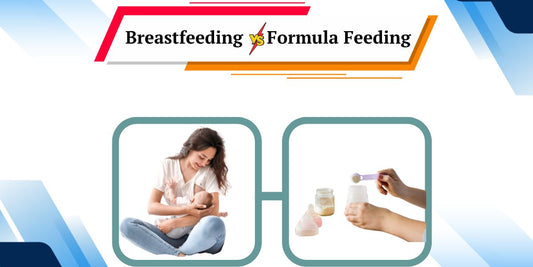Maternity is the journey of becoming a mother. It includes the phases of pregnancy, childbirth, and the postpartum period. This blog post provides information about the true meaning of maternity, its phases, symptoms, and more.
Understanding the True Meaning of Maternity:
Maternity is the experience of being a mother. It includes the physical changes that happen during pregnancy, childbirth, and the postpartum period. It also includes the emotional and social changes that come with becoming a parent. Maternity is a journey that is different for everyone. There are many challenges that mothers face, but there are also many joys. With support from family and friends, mothers can thrive during this special time.
Check out: Abstract Printed Co'ord Set
Key aspects of maternity:
- Physical changes: A woman's body undergoes many changes during pregnancy, including weight gain, changes in her breasts, and the growth of the fetus. Childbirth can also be a physically demanding experience.
- Emotional changes: Mothers experience a wide range of emotions during maternity, including joy, excitement, anxiety, and sometimes even feelings of being overwhelmed. They may also experience postpartum depression, which is a serious but treatable condition.
- Social changes: Maternity can have a significant impact on a woman's social life. She may need to change her work schedule, her social activities, and her relationships with friends and family.
- Challenges: Moms go through a lot of tough things when they're having a baby, like health problems, Having mood swings after birth, figuring out how to balance their job and home, and worrying about finances. It's really important to understand and deal with these problems to make sure both the mom and the baby are fine.
- Support: Mothers need support from family, friends, and healthcare professionals during maternity. Prenatal classes, support groups, and access to reliable information can be valuable resources.
Phases of Maternity:
Pregnancy:

Source: Link
A woman is carrying a baby in her womb. It usually lasts for about 9 months. During pregnancy, the baby grows and develops inside the woman's womb. The woman's body also changes to accommodate the growing baby. In the first few weeks of pregnancy, the baby's organs and tissues are forming. This is a critical time for the baby's development, and the woman may experience some early pregnancy symptoms, such as fatigue and nausea. As the pregnancy progresses, the woman's belly grows. She may also experience other symptoms, such as back pain, heartburn, and constipation.
Childbirth:

Source: Link
This is the process of a baby being born. It can be a natural childbirth or through cesarean section. It typically takes 12-18 hours, but the time can vary from woman to woman. The first stage of natural childbirth is called dilation. This is when the cervix, the opening of the uterus, opens up to allow the baby to pass through. The cervix usually dilates to 10 centimeters before the baby can be born. The second stage of natural childbirth is called pushing. This is when the woman pushes the baby out of the vagina.
Postpartum recovery:

Source: Link
This is the time after a woman gives birth. It might go on for a few weeks or even a few months. During the postpartum period, the mother's focus changes from taking care of herself during pregnancy and childbirth to taking care of her newborn baby.
Symptoms related to Maternity:
- Missed period
- Nausea and Vomiting
- Breast size changes
- Fatigue
- Frequent urination
- Constipation
- Mood swings
- Weight gain
- Stretch marks.



